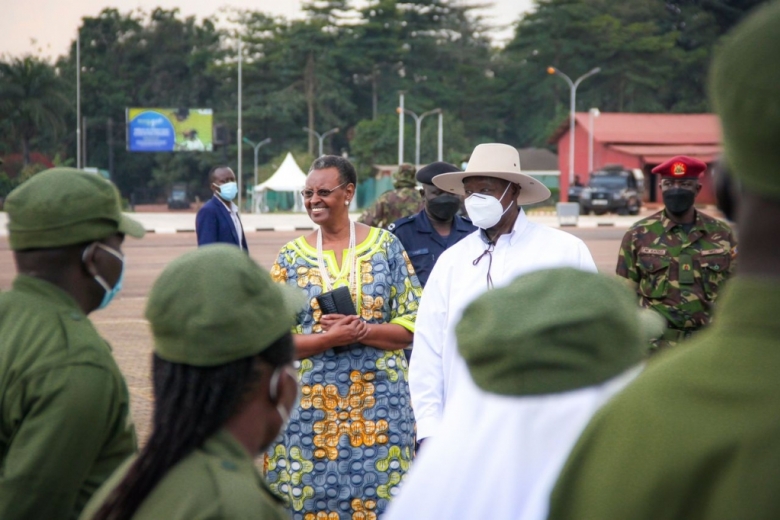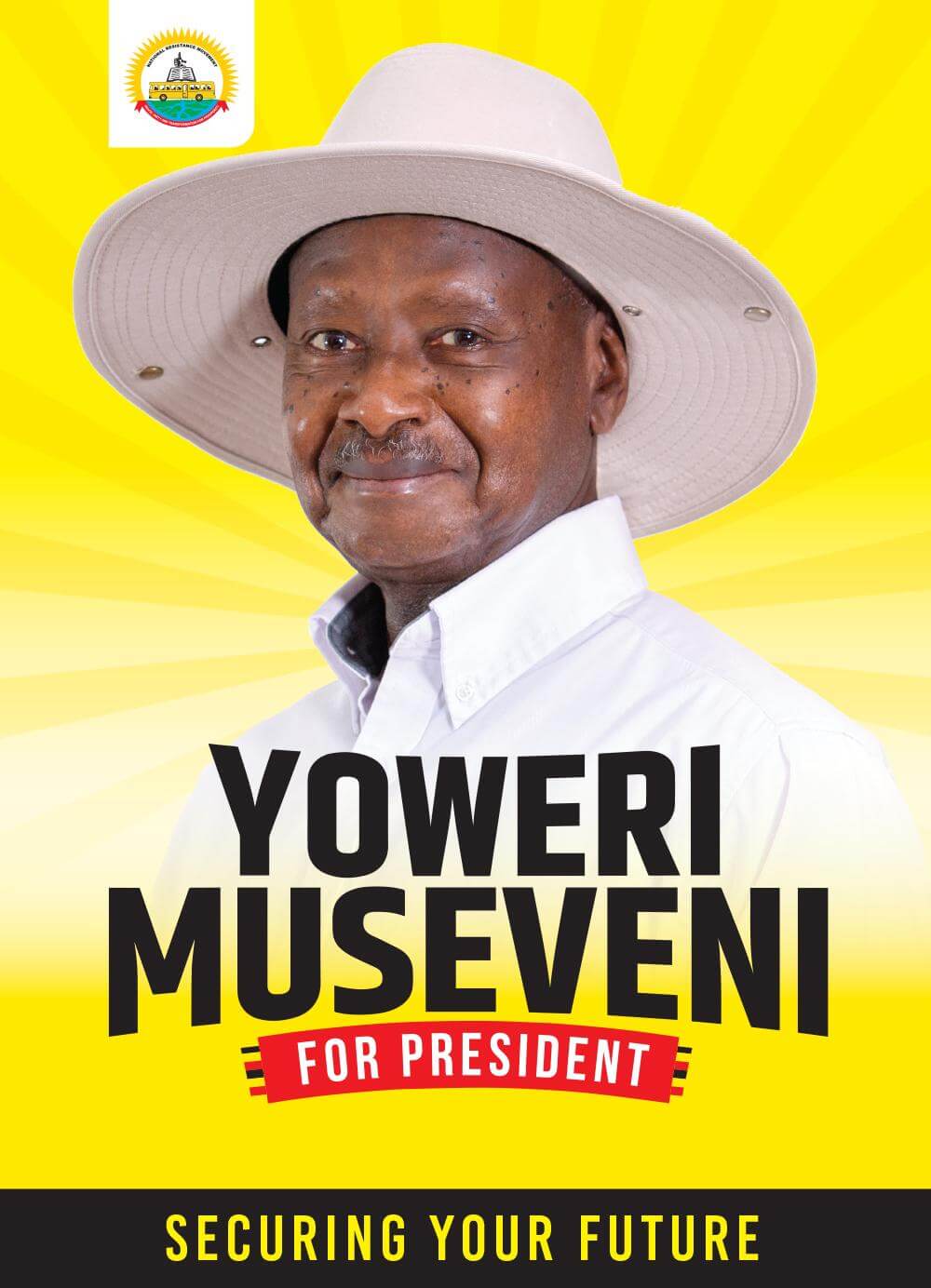
President Museveni has called upon stakeholders to rethink the model of education in schools with an aim of overhauling the colonial education system if the country is to achieve the much desired social-economic
transformation.
The president made the statements at the closing ceremony of a 9-day ideological mindset change retreat for Head Teachers from the Greater North regions of West Nile, Lango & Acholi sub regions at Kololo Ceremonial Grounds on Sunday.
“Now that I have been joined by Headteachers, we are going to get our people out of sleeping (Niino). Where is the address of wealth and jobs to be found? The NRM has been telling you there are four ways namely; Commercial Agriculture with calculations, manufacturing, services, and ICT. Do this and you will change the society (social economic transformation) through business” , he said.
He however noted that Education is also an element in social economic transformation but it must be the right type of education urging that the right type of education that highlights the community and the
country’s needs is paramount.
“The problem we have is that people have been having colonial education. The type of education designed to make all of you clerks, those white-collar jobs. How can everyone be a clerk? What will you record?
We shall have no farmer, no manufacturer, then what shall we record?” he posed.
He said this type of education has constrained social economic development in Africa and even rendered our people only useful when they travel abroad to work petty jobs commonly known as ebyeeyo.
“People are not creating enough jobs here so you see in Africa people running away for kyeyo, therefore, we do not just need any education but the right type of education, the type that focuses on the creation of jobs and
wealth in the four sectors,” he said.
The president highlighted examples from European states, that have since taken on a pragmatic form of education and in the end have been able to have their social classes metamorphose.
The president said that by the time of the renaissance, there were feudalists who survived by taking rent, artisans who made tools and the peasants who owned no land but worked to retain it. He said that these long metamorphosed into new classes towards social economic transformation.
“France is a good example because that is where we had a clear case, by 1789, the French society had evolved from a three-class society to a four-class society; the Bourgeois living on profits, the Proletariat living on wages, the feudalists living on rent and the peasants living on their sweat minus what the landlord took”, he said
“If you go to Europe today, there are no longer peasants, it has become a two-class society, the big manufacturers (Bourgeois) and the skilled working class (Proletariat). So, the problems of Africa have been perpetual, to have a
peasant producing a peasant”, the president further said.
He said that with the correct form of education, we are able to change from the culture of subsistence livelihoods and be able to create wealth through the four sectors in order to produce both for the stomach and for the pocket.
On the issue of patriotism in fostering social economic transformation, the president said we need to depend on each other and stop sectarianism for this will not transform our societies. “Uganda can transform better or solve our problems better than our tribal areas. That is why the NRM says Patriotism is very important because you need it for your prosperity” he said.
Regarding Pan Africanism, he said as we increase our production you will find that even Uganda is not enough giving examples where we have surplus products like Milk, sugarcane & maize (before the drought), hence the need for Pan Africanism (the market of East Africa) to further boost our good & services and unlock the African market
Speaking at the same event, the Minister of Education and sports, the First Lady, Mrs Janet Kataaha Museveni said that teachers are supposed to educate and disciple communities where they live so that they pursue
the national agenda of development.
She said our country’s needs begin at education level, urging teachers to offer more than just class work.
“Teachers in our days used to disciple communities in agriculture, nutrition, hygiene, those subjects that are vital for survival and community development.
Our children should have the opportunity to listen to teachers who are nationalists and patriotic,” she said.
Earlier, Ms Okwi Pamela Peace, the head teacher of Laroo Seed Secondary School in Gulu City and representative of the head teachers at the retreat read a document in which the teachers agreed to contribute to the implementation of the four-acre model by setting up model farms at the different schools for learning purposes for students
and the community.
“We are thinking of implementing the four-acre model at the school level, these will act as a model site for the communities who will appreciate and engage in it more,” Ms Okwi said.
Ms Hellen Sseku, the Private Secretary Youth Affairs in the office of the president and organiser of the retreat said the attendants of the retreat will now act as ambassadors of the message of development in their different communities.
The Commandant of the National Leadership Institute (NALI), Kyankwanzi Bring Gen Charles Kisembo who was also the host of the retreat for the nine (nine) days said the head teachers had been a wonderful team who provided a symbiotic interaction during the time.
He said the course that commenced on 13 th August 2022 involved 300 participants and considered the peculiarities of the group, nature of the young generation they handle and the community in which they live and work, to widen their perception towards the realities of life and how they change their roles in society as agents of change.


